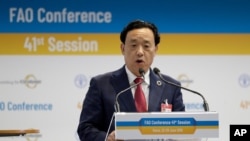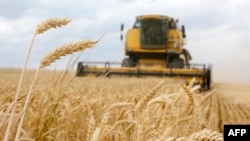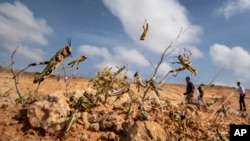On July 2, Qu Dongyu, a former Chinese government minister, was reelected to a second term as director-general of the Food and Agriculture Organization of the United Nations (FAO). Qu was the only candidate in the election.
One of the United Nations’ largest and most influential agencies, the FAO is tasked with overseeing international efforts to defeat hunger and achieve food security globally.
Two days prior to the FAO leadership election, a German investigative report accused Qu of corrupting the U.N. food agency and deviating from its policy of reducing farmers’ dependency on pesticides.
The investigation revealed that under Qu’s leadership, the FAO approved, facilitated and funded providing poor African and South Asian countries with pesticides banned in Europe for their high toxicity.
When asked about the accusation against Qu, China’s Foreign Ministry responded:
“…[H]is [Qu Dongyu] reelection with a big majority fully shows that his work over the past four years has been highly recognized by the international community, and the argument you just cited is totally unacceptable to the international community,” ministry spokesperson Wang Wenbin said on July 3.
That is misleading.
Under Qu, the FAO has deviated from its longtime policy of reducing global reliance on pesticides and entered into partnership agreements with agrochemical industry lobbying groups and firms, including those linked with the Chinese government.
When it comes to crop health, the U.N. Food and Agriculture Organization states that its policy is to promote a method called Integrated Pest Management, which emphasizes the least possible disruption to agroecosystems and encourages natural pest control mechanisms.
Formally, the FAO recommends judicious use of pesticides “only as a last resort” when there are no adequate alternatives.
However, the investigation titled “Food.Power.China”, produced by German public broadcasters Bavarian Broadcasting, Central German Broadcasting, RBB Fernsehen and SWR Fernsehen, revealed how the FAO under Qu’s leadership has facilitated and funded the increased use of pesticides in Africa’s and Southeast Asia’s poorest countries.
In 2020, one year after he took over as FAO head, Qu signed a letter of intent to explore a new partnership with CropLife International, the agrochemical industry’s largest lobbying group.
CropLife International states that its mission is “to promote agricultural technologies such as pesticides and plant biotechnology.” The association’s members include Bayer, Sumitomo Chemical and Syngenta.
The planned partnership triggered concern within civil society and among scientists, who said it would damage the FAO’s ability to act as an independent, neutral and honest broker between governments and the private sector.
A group of academics, scientists and researchers published a letter to Qu saying that the potential partnership “undermines FAO’s policy on minimizing the harms of chemical pesticide use worldwide, including the risks associated with highly hazardous pesticides (HHPs), many of which are produced by CropLife members.”
The letter added that U.N. institutions “should not be supporting a consortium of private businesses that stand to profit from the continued sale of products with documented harmful impacts on biodiversity.”
The science news website Mongabay pointed out that under Qu, the FAO had approved the use of six toxic pesticides to be used in East Africa, three of which were considered hazardous by the World Health Organization.
Mongabay noted that according to the FAO’s own data, 95.8% of the pesticides delivered to East African nations between 2019 and 2021 were “scientifically proven to cause serious harm” to humans, fish and mammals.
In the above-mentioned documentary, former FAO employee Hans Dreyer said he was "shocked by the frequency with which shipments of such toxic pesticides have been approved.”
Allan Hruska, a former FAO officer with expertise in crop protection, told reporters that by entering a partnership with CropLife International, the U.N. body is no longer in a position to discuss the health hazards of pesticides with member countries and companies.
“Now, the director general smiles into the camera with the leadership of CropLife and says ‘we entered into this strategic partnership. We are moving forward together.’ To me, that is the wrong appearance and message. The FAO is no longer an honest, neutral broker,” Hruska said.
The FAO entered a partnership with CropLife International member Syngenta in 2020, saying the goal was to “undertake technical exchanges and consultation in areas of mutual interest.”
German reporters analyzed FAO data regarding pesticide deliveries and found that Syngenta was far and away the largest supplier.
Syngenta, a company specializing in seeds and pesticides, is owned by China National Chemical Corporation (ChemChina), a Chinese state-owned chemical company.
According to the Peterson Institute for International Economics, a Washington-based think tank, state-owned enterprises in China are firms in which the Chinese government owns a majority stake. That means that the Chinese government can participate in shaping ChemChina’s strategies and intervene in its decision-making processes.








